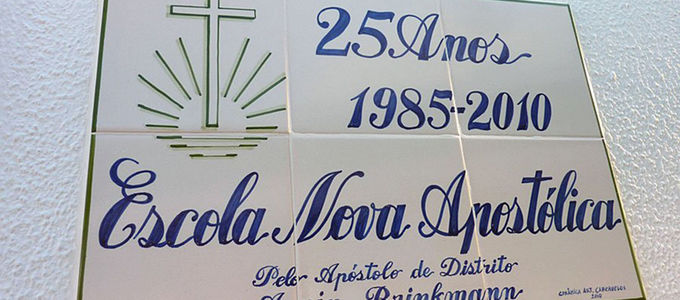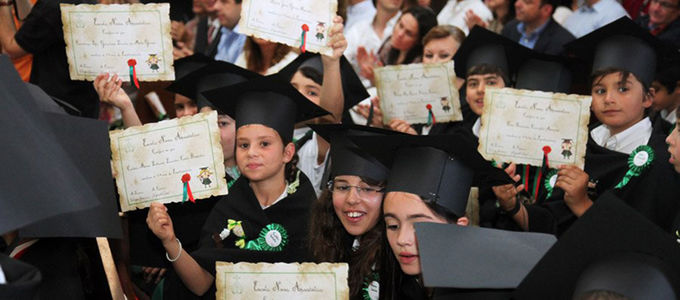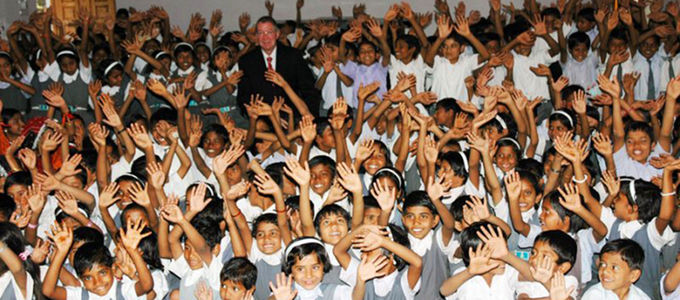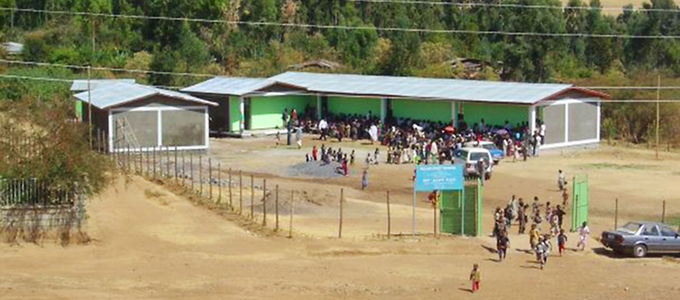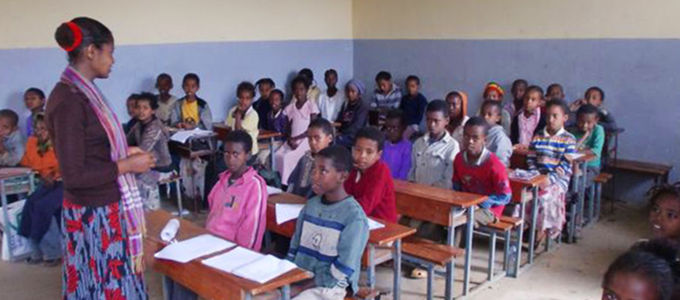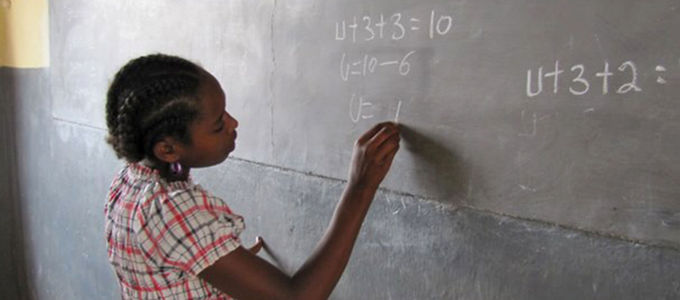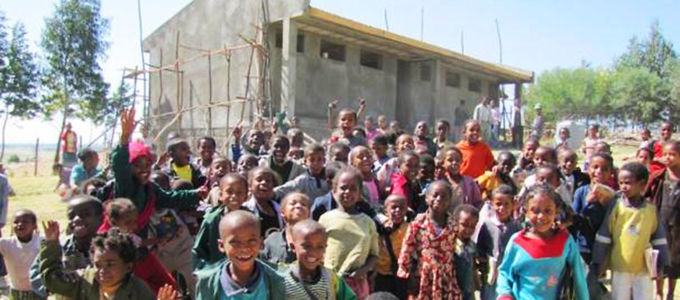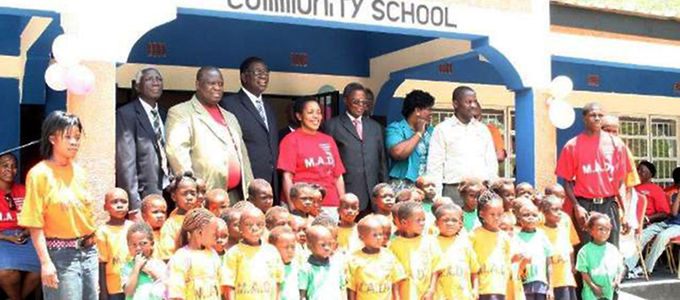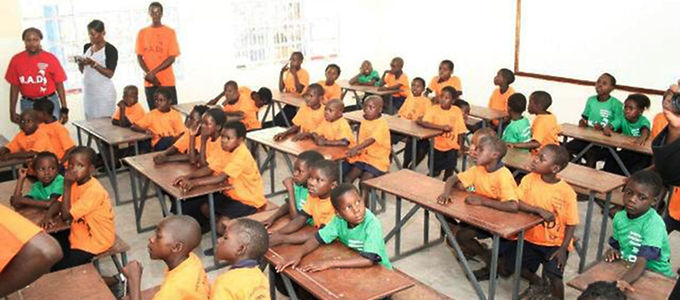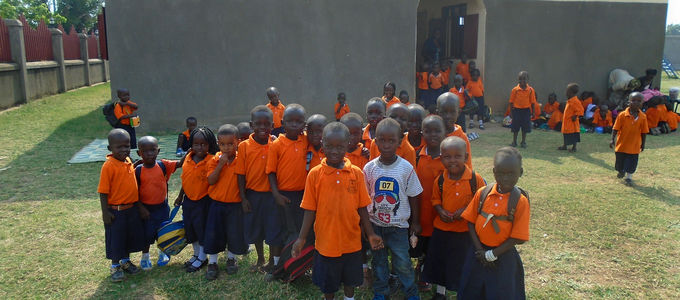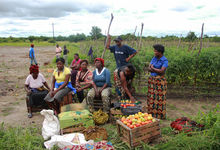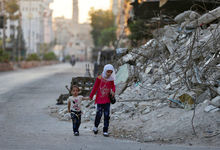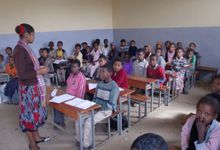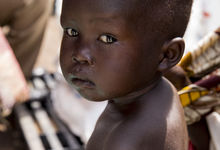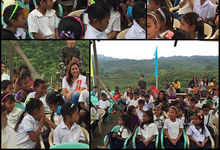Church offers more than just school on Sundays
“The Church gave me a chance,” says Mohamad Agub. He attended both primary and secondary school in Kherwara (India). This is one of the schools that the New Apostolic Church supports or even operates around the globe.
Education is the best chance a person can have for a better life, but according to figures from the United Nations (UN), there are some 60 million children around the world who do not even have the opportunity to learn to read, write, or do math. One example is in South Sudan: the aid agency known as NAK-karitativ reports that, without the commitment of the various churches, there would only be a handful of schools in the national capital of Juba, instead of the 60 primary schools that are currently in operation there. And there would be no secondary schools at all.
The New Apostolic Church has also joined the ranks of these Christian school sponsors. From 2008 to 2012 the District Churches of Lower Saxony and South Sudan gradually built up a kindergarten and a primary school in Juba’s northwest city quarter of Muniki. And planning is currently underway for an expansion to accommodate 240 students from grades nine to twelve.
On the basis of neighbourly love and a sense of responsibility
Practising charity, exercising institutional responsibility as part of society, and making a contribution to peaceful coexistence: these are the motivations behind such a commitment in the field of education. District Apostle Charles Ndandula (Zambia) adds another motivation to the list: “Education gives knowledge, and well informed members contribute more effectively to the community and the church.”
His working area, which incorporates the countries of Zambia, Malawi, and Zimbabwe, operates two schools, namely “Matenda” and “Makapaela”, in the two provincial capitals of Mansa (Northern Zambia) and Mongu (Western Zambia). And it not only finances the building, teaching staff, and teaching materials for a total of six elementary school classes, but is also developing a curriculum.
Working with local partners
The two schools, which the “Missionswerk der Neuapostolischen Kirche Süddeutschland” constructed in Sebeta, Ethiopia in 2005 and in Tefki, Ethiopia in 2008, are primarily attended by street children. According to an estimate by child welfare agency UNICEF, some 100,000 children in Ethiopia are living on the streets. As “AIDS orphans”, many of them are completely on their own, and often live in fear of violence, abuse, and disease.
These institutions, which serve a total of some 800 students, are led by the local aid organization “Selam Hiwot Integrated Children and Community Support Organization”. The building costs were completely financed by the Missionswerk. And there is an annual budget from Southern Germany for the operation of the schools, which pays for such things as teaching materials and teacher salaries.
Active for three decades
The oldest of these New Apostolic school establishments is known as the “Escola Nova Apostolica”. The facility opened in the Portuguese capital of Lisbon in 1985. Having begun with 40 students and seven employees, the school numbers as many as 500 pupils and over 30 teachers today.
In 1993 the German District Church of North Rhine-Westphalia established its second school, namely in Kherwara in the Indian federal state of Rajasthan. Having begun as a nursery school, it now also features an elementary school and a secondary level from which students graduate in grade ten.
A large number of projects
These self-directed schools are only the most prominent examples of the commitment of the New Apostolic District Churches in the area of education: there are hundreds of thousands of children who will benefit from countless individual contributions and medium-term projects. These run the gamut from a financial jumpstart for school buses in Bolivia to support for the establishment of a Christian community school in the East German city of Gera, to the reconstruction of a school in the Philippines, which was destroyed by a typhoon.
The important thing in all of these activities is what Shitaye Asefa said of her work as a teacher in the Selam Hiwot School in Sebeta, Ethiopia: “I have had the opportunity to support students in being successful and committed individuals.”
Article info
Author:
Date:
Keywords:
Andreas Rother
10.09.2016
Ethiopia,
Zambia,
South Sudan,
India,
Philippines,
Germany,
Portugal,
Bolivia,
Aid agencies,
Auxiliary institutions,
Social commitment,
International


